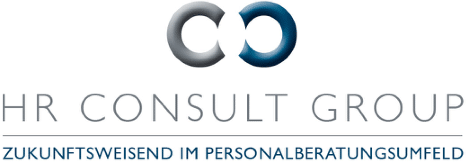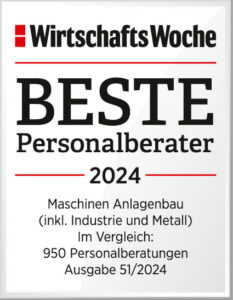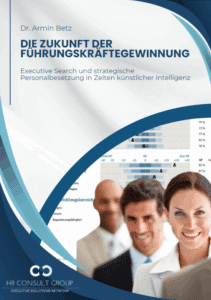In der Welt der Personalberatung hat die Künstliche Intelligenz (KI) in den letzten Jahren eine immer wichtigere Rolle eingenommen. Mit dem technologischen Fortschritt und der zunehmenden Digitalisierung der Arbeitswelt eröffnen sich durch den Einsatz von KI in der Personalberatung neue Chancen, aber es entstehen auch neue Herausforderungen. In diesem Blogartikel beleuchten wir, wie KI die Personalberatung revolutioniert, welche Potenziale sie bietet und welche Hürden es zu überwinden gilt.
1. KI in der Personalberatung: Eine Einführung
KI-Technologien in der Personalberatung reichen von Algorithmen für das Matching von Lebensläufen mit Stellenbeschreibungen bis hin zu fortgeschrittenen Analysetools, die Persönlichkeitsmerkmale und Kompetenzen von Bewerbern bewerten können. Diese Technologien versprechen eine effizientere und genauere Kandidatenauswahl, was zu einer besseren Passung zwischen Arbeitgeber und Arbeitnehmer führen kann.
2. Chancen: Effizienzsteigerung und besseres Matching
Der vielleicht offensichtlichste Vorteil der KI in der Personalberatung ist die Effizienzsteigerung. KI-Tools können riesige Mengen an Daten – Lebensläufe, Stellenbeschreibungen, Bewerberprofile – in Sekundenschnelle verarbeiten und analysieren. Dies führt zu einer schnelleren und oft qualitativ besseren Kandidatenauswahl. Darüber hinaus ermöglicht die KI ein präziseres Matching von Bewerbern und Jobangeboten, indem sie nicht nur auf der Basis von Qualifikationen und Erfahrungen, sondern auch anhand von Persönlichkeitsmerkmalen und kultureller Passung auswählt.
3. Personalisierte Erfahrungen und Erweiterung des Talentpools
KI-Technologien ermöglichen es Personalberatern, personalisierte Erfahrungen für Bewerber zu schaffen. Kandidaten können durch KI-gestützte Plattformen effektiver mit passenden Jobangeboten gematcht werden. Zudem eröffnet die KI die Möglichkeit, versteckte Talente zu entdecken und den Talentpool zu erweitern, indem sie Kandidaten identifiziert, die möglicherweise übersehen wurden, weil sie nicht den traditionellen Kriterien entsprechen.
4. Herausforderungen: Ethik und Datenschutz
Mit den Vorteilen kommen allerdings auch Herausforderungen. Eine der größten Bedenken im Zusammenhang mit der KI in der Personalberatung ist die Frage der Ethik und des Datenschutzes. Algorithmen können unbewusste Vorurteile widerspiegeln, die in den Trainingsdaten vorhanden sind, was zu einer unfairen Behandlung bestimmter Bewerbergruppen führen kann. Datenschutz ist ebenfalls eine kritische Frage, da KI-Systeme auf große Mengen persönlicher Daten angewiesen sind.
5. Kontinuierliche Anpassung und Integration
Eine weitere Herausforderung ist die Integration von KI-Systemen in bestehende Personalberatungsprozesse. Nicht alle Unternehmen und Beratungsfirmen sind technologisch so weit fortgeschritten, dass sie KI nahtlos integrieren können. Darüber hinaus erfordert die Nutzung von KI eine kontinuierliche Anpassung und Aktualisierung der Systeme, um mit den neuesten Entwicklungen Schritt zu halten.
6. Fazit
Die Integration von Künstlicher Intelligenz in die Personalberatung bietet immense Chancen, von effizienteren Prozessen bis hin zu einem verbesserten Matching von Kandidaten und Arbeitgebern. Gleichzeitig dürfen die Herausforderungen nicht unterschätzt werden, insbesondere in Bezug auf ethische Fragen und Datenschutz. Die Zukunft der Personalberatung wird stark davon abhängen, wie gut diese Technologien genutzt und in bestehende Systeme integriert werden können, sowie wie effektiv mit den damit verbundenen Herausforderungen umgegangen wird. In einem sich ständig wandelnden Arbeitsmarkt wird die KI zweifellos eine Schlüsselrolle spielen, um den Anforderungen von Arbeitgebern und Arbeitnehmern gleichermaßen gerecht zu werden.




